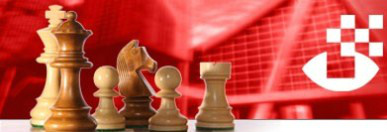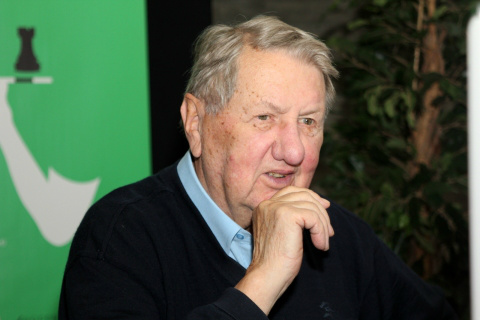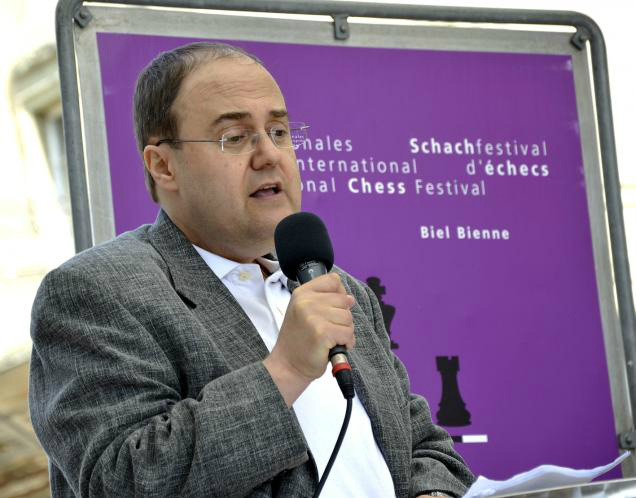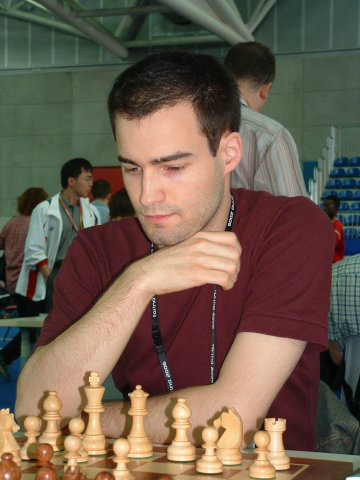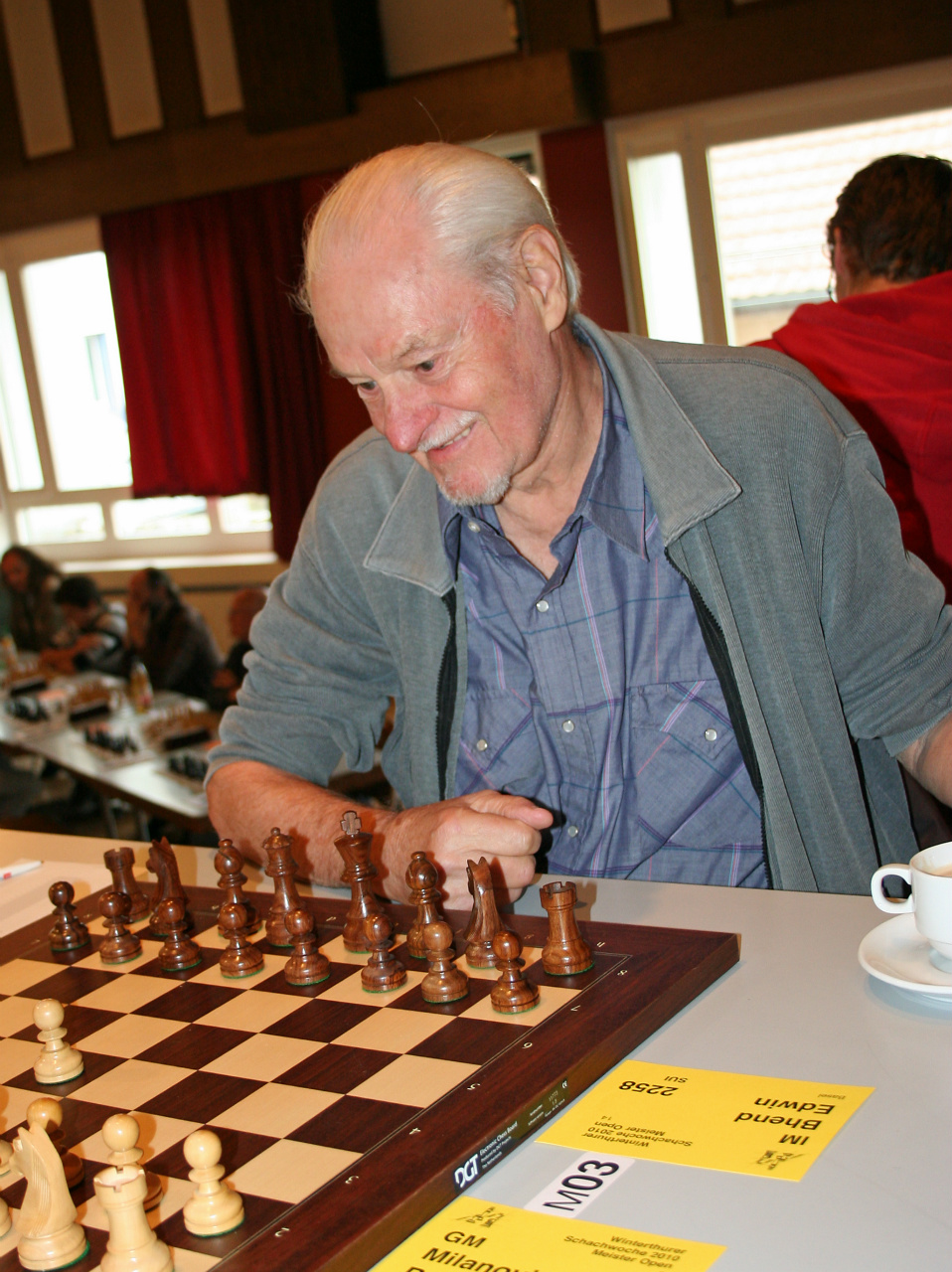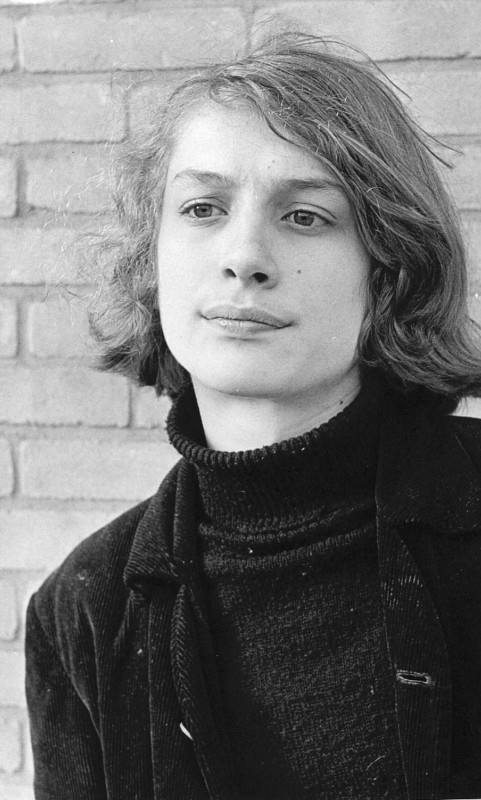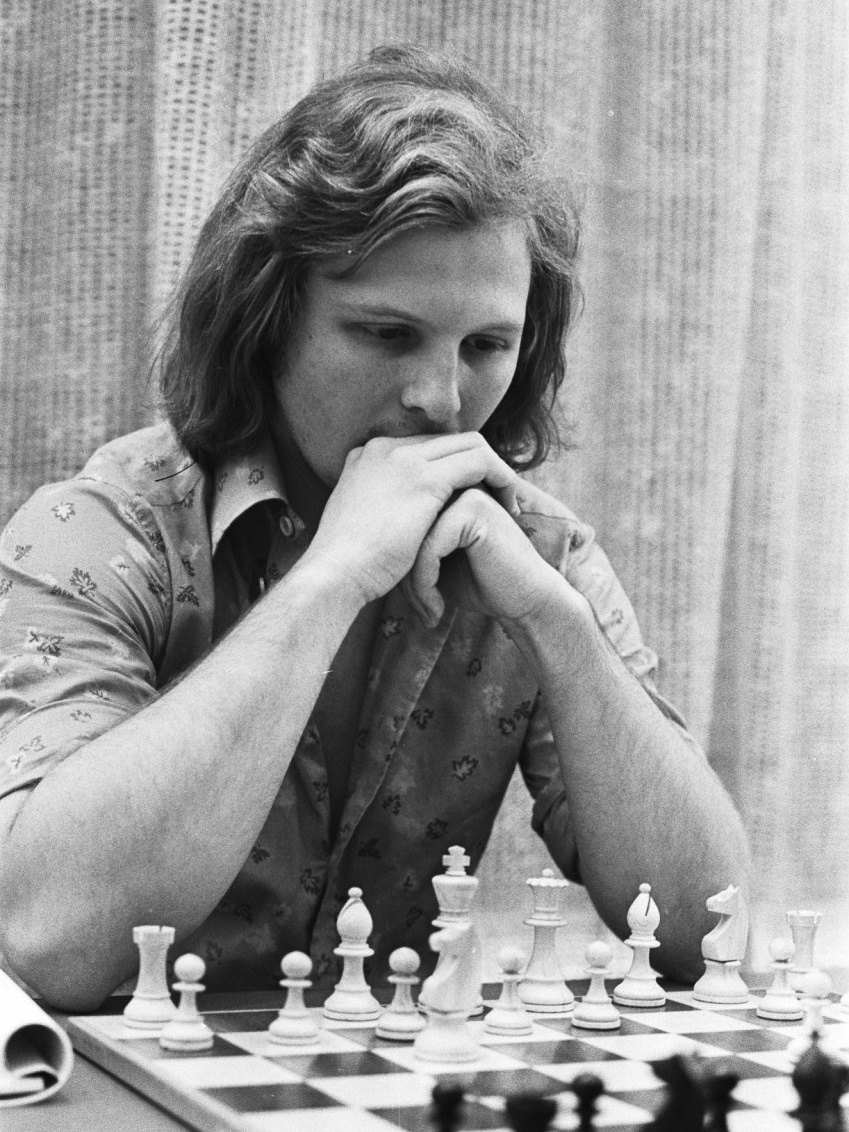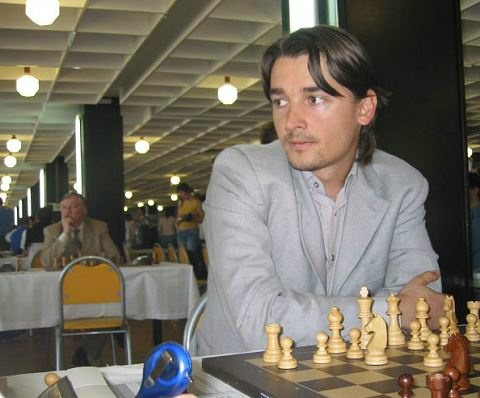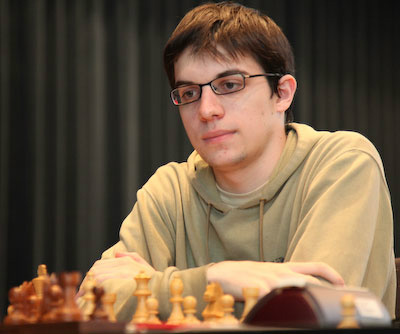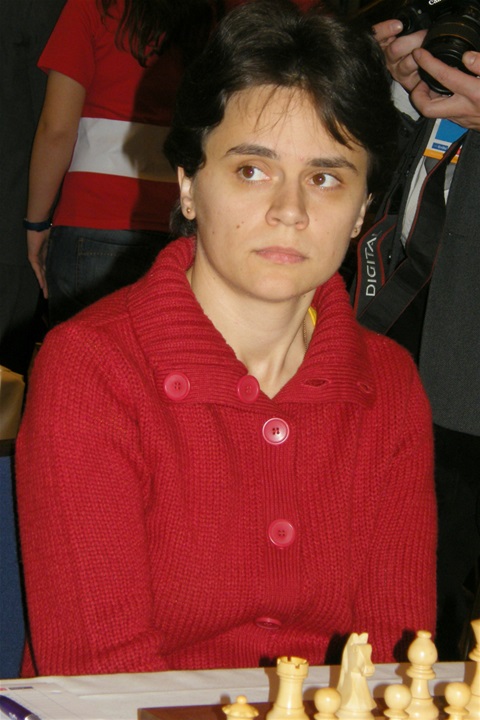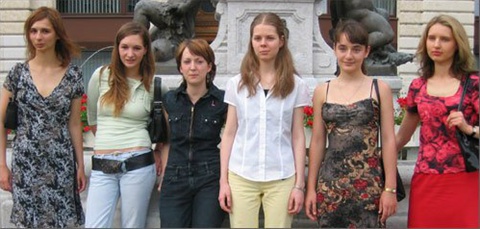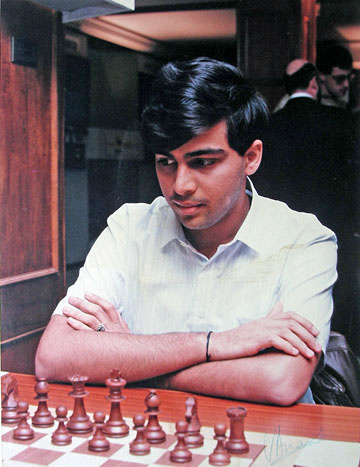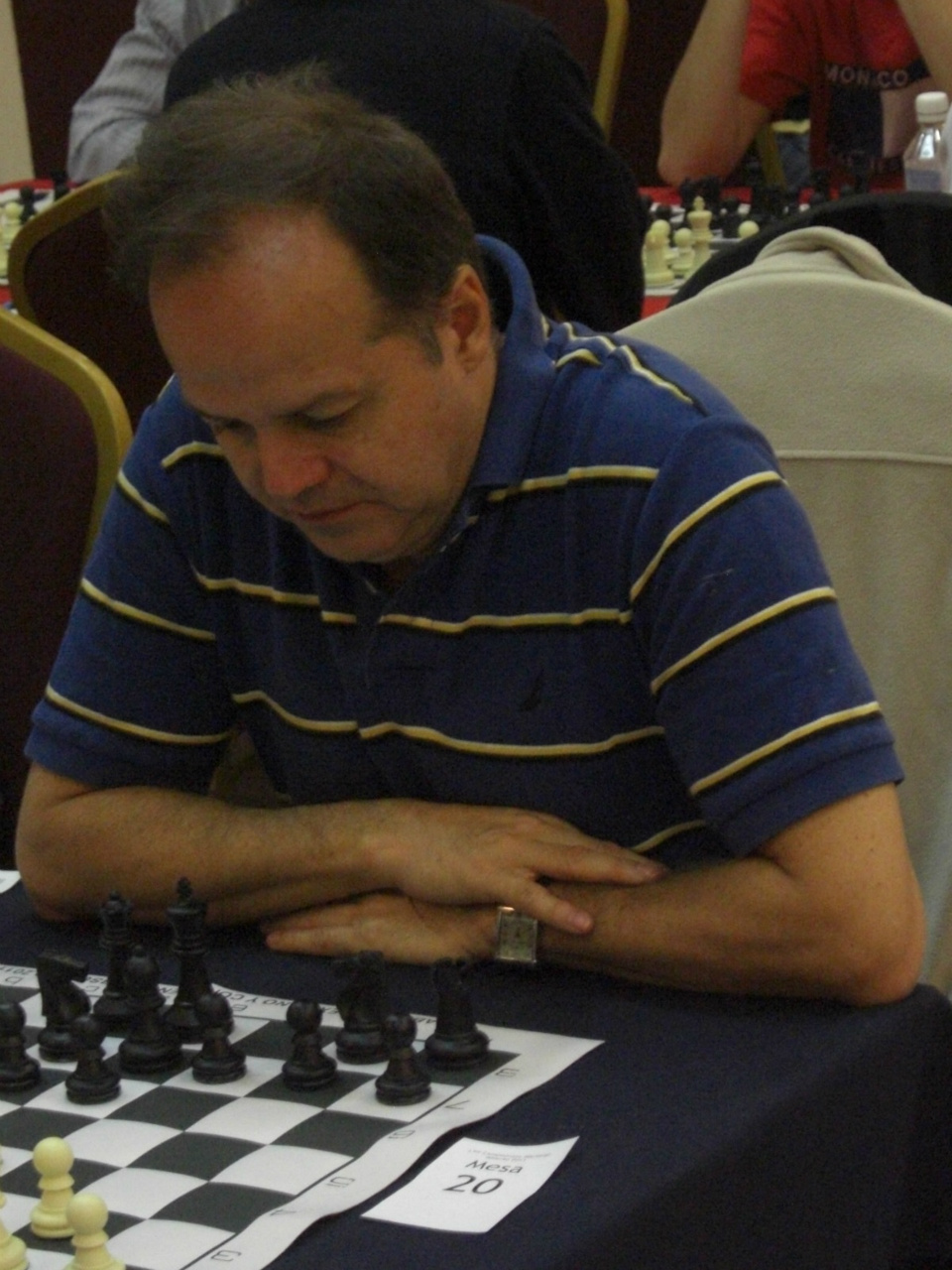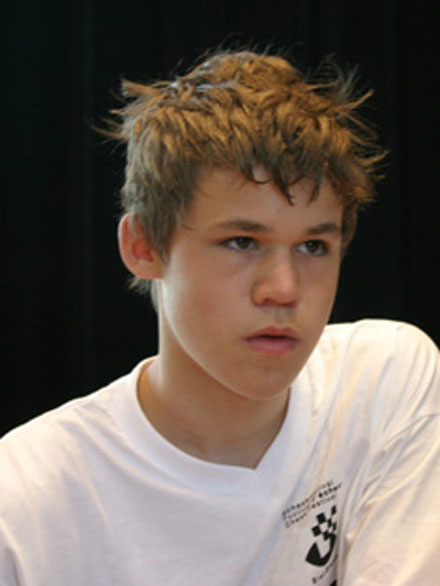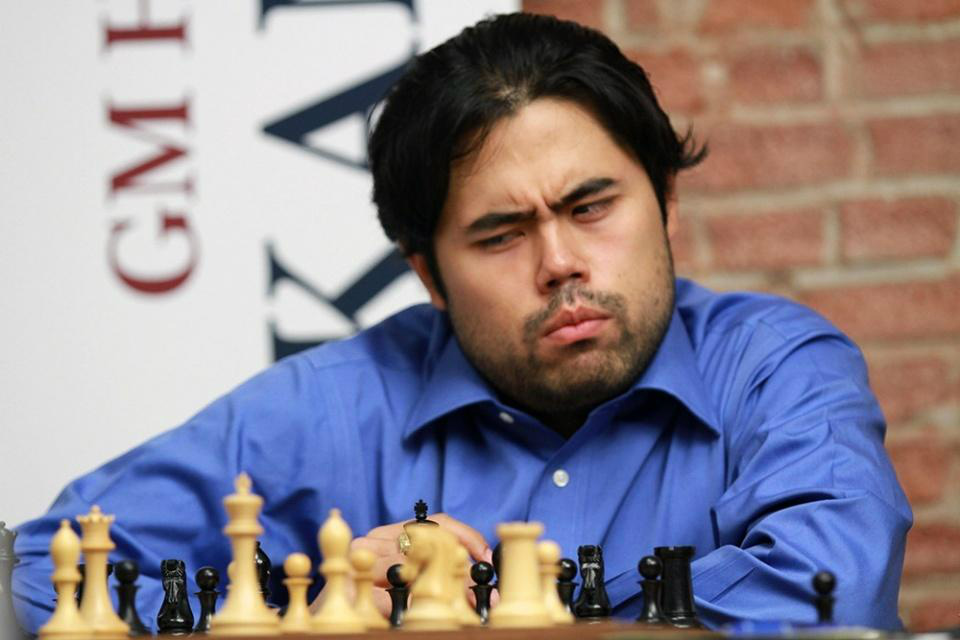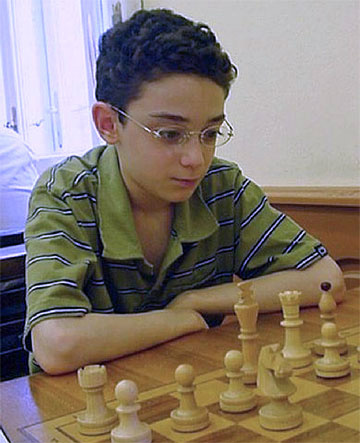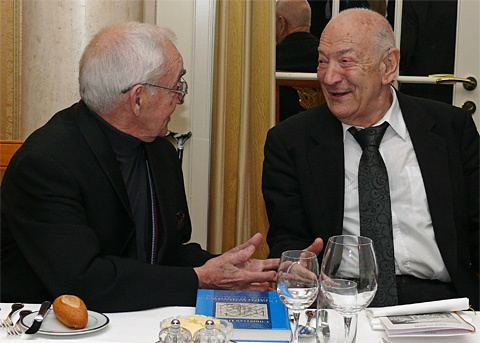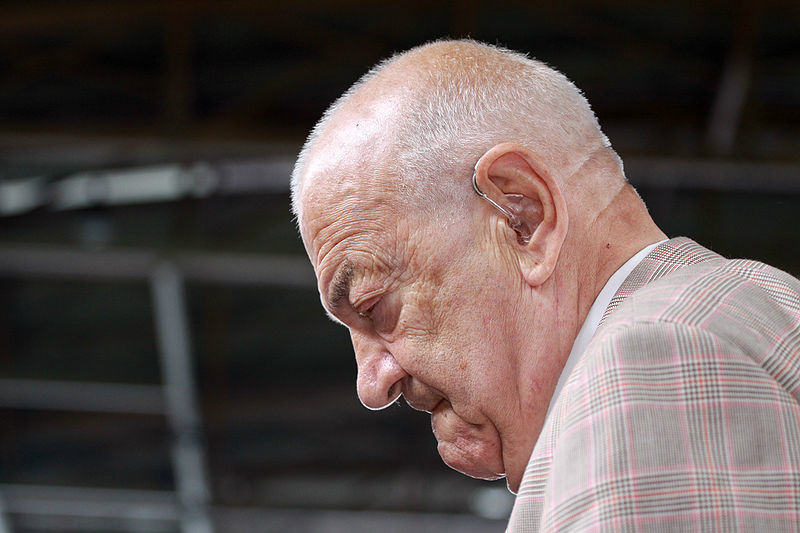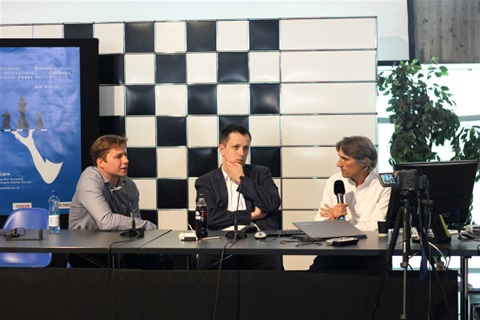Biel International Chess Festival (1st 1968, 55th 2022)
The first Biel International Chess Festival 1968 was held in the swissgerman / french metropole Biel/Bienne in the canton of Bern in Switzerland, as an Open (MTO), going on since then annually and expanding step-by-step, since 1977 an international elite Grandmaster Tournament (GMT) is part of the Festival, too.
Magnus Carlsen from Norway, the reigning World Chess Champion and the World's Number One, played again at International Biel Festival in July / August in 2018!
Seven undisputed World Chess Champions played at Biel Chess Festival (Interzonals included):
Smyslov, Tal, Petrosian, Karpov, Kramnik, Anand, and Carlsen, a seven-time participant who also played in 2012 as reinging no. 1 of the world, and again in 2018 as reigning no.1 of the world and reigning World Champion.
Spassky and Kasparov were guest of honour and gave a simul at Biel. Euwe was present in Biel at the Interzonal closing ceremony in 1976.
Chess is a game for all ages: Magnus Carlsen is the youngest winner ever of the GM Invitation tournament at age of 16 in 2007 after Armageddon (read more further below); Viktor Korchnoi is the oldest winner ever of the GM Invitation tournament at age of 70 in 2001 (ahead of Svidler as sole second and Gelfand as clear third).
The near complete elite of the last forty years played at the International Chess Festival of Biel, this is a record only matched by Wijk aan Zee.
Biel was hosting city of a FIDE Interzonal Tournament (IZT) a record three times, namely in 1976 (winner Bent Larsen), in 1985 (winner Rafael Vaganian) and again in 1993, the last Interzonal ever, it was played as an Open, won by Boris Gelfand). For more about these three Interzonals at Biel, please look in the subsection "Interzonals"!
An international elite Grandmaster Tournament (GMT) is taken place annually since 1977 at Biel, the year after the Interzonal from 1976 (with the exception of 1978 and 2016, plus in the other Interzonal years 1985 & 1993). The big Open (Master Tournament, MTO) continues, and additional chess events such as an Amateur Open (Main Tournament), youth contests, sometimes a "B" - Group or Ladies Tournament, Rapid, Blitz exhibitions as well as simuls (given from Korchnoi to Karpov, from Spassky to Kasparov, from Hou Yifan to the three Polgar sisters, from Alexandra Kosteniuk to Alisa Maric, from Corina Peptan to Pia Cramling, and of course, Magnus Carlsen, to mention only a few of the stars in a public meeting at Biel), and other events running each year.
In 1994, the 4th Senior World Chess Championship, won by Mark Taimanov, took place during the Festival at Biel.
During the Interzonal in 1976, in total 820 players from all continents played, the Interzonal year's issue of 1993 even saw 1344 players participating. Biel really is an International Chess Festival, not only one closed super-tournament as some other major names in the international circuit.
Winner of the very first International Biel Open in 1968 was Swiss Edwin Bhend, on tie-break above young Dutch Jan Timman.
Legendary Tony Miles from England, did win the first International Grandmaster Invitation Tournament at Biel in 1977, ahead of Oscar Panno from Argentina, Roman Hernandez Onna from Cuba, Ulf Andersson from Sweden, including Torre, Kavalek, Kagan, Flesch, Vukic, Kestler from West Germany or Robatsch from Austria, and many IMs from Switzerland (16 players).
The 50th Jubilee edition of the whole Biel / Bienne International Chess Festival saw a distinguished winner: Congratulations to Hou Yifan from China for triumphing in the elite Grandmaster Tournament at Biel in 2017 as clear first above players like Harikrishna, Navara, Morozevich, Ponomariov, Bacrot or Leko; and a good contest also for Swiss Nico Georgiadis who finished above 50% in that GMT.
Shakhriyar Mamedayarov from Azerbaijan took clear first place in the Grandmaster Tournament in 2018, defeating World Champion Magnus Carlsen in round 9 to clinch it. Carlsen was runner-up, Vachier-Lagrave and Svidler were shared third / fourth, Navara finished fifth, and young Nico Georgiadis placed sixth and last.
Three forever unforgotten games from Biel / Bienne:
> The King March of the Century
David Navara vs Radoslaw
Wojtaszek 1-0 (Biel 2015, round 4),
http://www.chessgames.com/perl/chessgame?gid=1795647
The GM tournament at Biel 2015 witnessed one of the most memorable chess games of all time:
Starting with move 20. Kg1-f2 to move 28. Kf7-f8 walking in the middlegame through all files, the white king surpassing an army of black pawns and then immediately get attacked by the two black rooks, 29. Kf8-g8, 30. Kg8-h8 in the enemy’s corner, most people in live coverage thought it’s a king’s hunt, but King David (Navara) calculated well, also deep engine preparation and Navara gave credit to his second Igor Stohl, plus Navara’s opponent Radoslaw Wojtaszek bravely accepted the challenge, both player could have stopped this tortuous king manoeuvre quite easily with a boring play for perpetual draw – but they were searching for the truth!
Video analysis by Daniel King, enthusiastically commentating Navara's King march:
https://www.youtube.com/watch?v=Gk8Zd-Z4G_Q
Cartoon of (King) Navara: https://chess24.com/en/read/news/biel-2015-round-4-navara-s-king-goes-walkabout
> Bielissima! Another miracle from Biel
Anand vs. Lautier 1-0 (Biel 1997, round 1)
http://www.chessgames.com/perl/chessgame?gid=1018785Apr&kpage=7
> And a Tragedy
Hübner vs. Petrosian 0-1 (Biel 1976, IZT)
http://www.chessgames.com/perl/chessgame?gid=1107111
The initial impulse to establish an annually returning international invitational event was born during the Swiss national championship from 1967, held at Biel. Hans Suri and his team realized it from
1968 with growing success. Alexandra Kosteniuk writes in her blog:
"Hans Suri remained the festival's director for three decades as the chess festival grew in stature and reputation. Today, the festival is an important part of the international calendar"
(For Alexandra Kosteniuk, compare http://chessqueen.com/)
The SKA - Crédit Suisse had been the main festival sponsor from 1986 to 1997. After Hans Suri (on top of the festival up and including the edition of 1997), retired after 30 years in the lead of the festival, Peter Burri as Director and Olivier Breisacher as Public Relations and Grand Masters Tournament Manager soon became the driving force in the new century and popularized the Chessfestival of Biel in the Internet era, establishing live coverage of the games with deepened commentaries and always scouting for a good mix of experienced players and magnificient talents such as Magnus Carlsen who's professional chess career start is closely connected with the super-tournament at Biel.
Following the tragic death of Olivier Breisacher, GM Yannick Pelletier takes over the function as director of the Grandmaster tournament today, with Peter Burri further on as Director of the whole Festival at Biel / Bienne. Peter Bohnenblust, a prosecution attorney by profession, is current president of the organization committee.
Obituaries honouring the founder father and longtime organizer of this major recurring chess event, Hans Suri, and his successor Olivier Breisacher.
http://www.chessvibes.com/?q=reports/biel-organizer-olivier-breisacher-dies-at-44 (Chessvibes)
http://www.bielchessfestival.ch/de/articleview/news/introductory-report/
(Grandmaster Mišo Cebalo who is regular player and commentator at Biel International Chess Festival, honours in this obituary Oliver Breisacher, Rino Castagna, and with very personal feelings, Hans Suri; link later inactivated
by the Organisers)
IM Edwin Bhend (beating great Tal with black at Zurich 1959), playing for Switzerland at the Chess Olympiad 1952, 1954, 1956, 1958, 1964, 1966, 1968, 1972, 1978, and 1982, SUI2), the winner of the very first Chess Festival of Biel / Bienne in 1968. Photo: SV Winterthur, Bhend at the 10th Winterthurer Schachwoche in 2010
Albo d'Oro (GMT)
Record four-time winner of the GM Tournament at the International Biel / Bienne Chess Festival is Maxime Vachier-Lagrave who won in 2009, 2014 & 2015 outright and 2013 after a four player play-off.
Thrice-winners at Biel are Alexander Morozevich who could win three times outright in 2003, 2004 & 2006, and Anatoly Karpov with two wins outright in 1990 & 1992 and one one win in 1996 on tie-break-rule over Vadim Milov.
Tony Miles (1977 & 1983), Viktor Korchnoi (1979 & 2001), and Magnus Carlsen (2007 & 2011) won the GM invitation tournament twice.
Further winners at Biel Grandmaster Tournament are Viswanathan Anand, Wang Hao, Fabiano Caruana, Jereon Piket, Mladen Palac, Ivan Sokolov, Evgeny Alekseev, Andrei Volokitin, Boris Gelfand, Peter Svidler, Vassily Ivanchuk, Alexej Shirov, Alexej Dreev, Ilya Smirin, Boris Gulko, Lev Polugaevsky, Vlastimil Hort, John Nunn, Robert Hübner, Eric Lobron, as well as Yehuda Grünfeld, Florin Gheorghiu, Vadim Milov and USSR-Swiss-Lithuanian Viktor Gavrikov (R.I.P.) who did win at Biel (in different years) both the open and the closed tournament as sole or at least shared first.
Spassky, Fischer, and Kasparov did never take part, with Spassky and Kasparov being guest of honour in Biel.
Former undisputed World Chess Champions Smyslov, Tal, Petrosian, Kramnik, and Anand all took part in a Interzonal at Biel, the latter was also winner of the Biel Chess Festival in 1997. FIDE World Champions Topalov and Khalifman played in an Interzonal, too, Ponomariov played in the GM tournament, Kasimdzhanov acted as a commentator at Biel.
Bent Larsen won as clear first the famous Interzonal in 1976 with three ex world chess champions competing, Rafael Vaganian won outright the Interzonal in 1985. Apart from his victory in the GM tournament in 2005, declared ex-aequo with Andrei Volokitin, Boris Gelfand claimed the Interzonal at Biel in 1993, now played in swiss system, as sole winner.
For the history
of the Interzonal tournaments in Biel, see section:
Biel
Interzonals - www.chessdiagonals.ch
For the Albo d' Oro, a complete list of the winners (GM Invitation and Masters Open), see section:
Winners
at Biel - www.chessdiagonals.ch
Note:
Since the year 2007, Biel follows in the elite event a strictly "One-winner-per-tournament-policy". If there are two ore more first equals, then a play-off in speed chess will
be played to decide the vanquisher.
That means, eg. Etienne Bacrot (in a four player play-off in 2013), Leinier Dominguez-Pérez 2008 (against Alekseev) or Alexander Onischuk 2007 (against Carlsen) - among others - missed the tournament win after play-offs; and Vachier-Lagrave who secured one of his four wins at Biel after play-off, missed a further tournament win only after play-off (finally on third place in 2010). Losing a physical play-off, clearly means, that you have not won the corresponding event.
Even in the earlier years without a play-off, there was strictly speaking a tie-break rule used to decide who will be the formal winner of the invitation tournament - but in these cases when two players tied for first place at Biel, both were regarded as shared winners by organizers and mass media. That's why some statistics may differ now, according a strict formal line, Florin Gheorghiu and Vadim Milov, missed a win in the invitation tournament on tie-break rule; as well as Hort, Nunn, Lobron, Gulko, and Polugaevsky missed a second tournament win at Biel only because of lesser tie-break score.
However, in the tableau of "Past Winners" on the official tournament homepage, this differentiation is not made consequently (Hort, Nunn, Lobron, Gulko are listed in the corresponding year as co-winners of Biel, meanwhile Polugaevsky (sharing first but seond on tie-break in 1989) and Milov (in 1996) seemed to be forgotten). Contrary, in the year-by-year booklets of "History" with full position table (pdf's on the same page in the rubric "Archives"), in these disputed cases, the winner on tie-break rule is always listed as sole first (no first equal), with two explicit exceptions:
Twice in the history of Biel, there was a tie with even scores, and the organizers declared both players as equal winners: in 1984 Hort / Hübner and in 2005 Gelfand / Volokitin (alphabetically listed). As said, this no longer possible, because today there will be always a play-off with rapid and blitz games, and Armageddon is installed if still no decision.
Biel GM Invitation Tournament used from 2011 to 2013, the "Three-points-per-win-scoring-rule", as Bad Homburg already in 1998, Bilbao, London, Sofia and others did / do, but then returning to the classical point system in 2014 (win: 1, draw: 0.5, loss: 0 points).
Since 1992, there are no adjourned games in the GM elite event. The Interzonal in 1993 still saw adjourned games, played always the same day in the late night.
Time control (2014) is 100'/40 moves + 50'/20 moves and 15' + 30'' increment from 1st move.
Draw offer are forbidden during the first 40th moves (in 2014). That's a good move :)
Great chess players also competing, but <not winning > at Biel GM Invitation Tournament:
Timman (winner of the Open in 1969 but only coming in 13th out of 14 in 1995), Portisch, Andersson, Panno, Torre, Adorjan, Kurajica, Wojtaszek, Navara, Ftacnik, Pachman, Unzicker, Christiansen, De Firmian, Tukmakov, Romanishin,
Beliavsky, Bareev, Ehlvest, Ponomariov, Radjabov, Grischuk, Lautier, Bacrot, Adams, Georgiev, Vallejo-Pons, Sasikiran, Ding Liren, Nakamura, So, or Giri. Note: Karjakin played
as youngster in the Open section.
Some heroes from Switzerland also played in the GM tournament: Partos (winner of the Open at Biel in 1978), Nemet (winner of the Open at Biel in 1982), W. Hug, Lombard, Wirthensohn, Franzoni, Züger, Känel, Huss, Gobet, Forster, Brunner, Jenni, Ekström, Gallagher, or Pelletier (he was invited an overall record eleven time, never won, never runner-up).
And of course the already mentioned Milov (won with Karpov in 1996 as well the Open twice), Gavrikov (won outright in 1994 ahaed of Vagnian as well the Open) and Korchnoi (clear first in 1979 and 2001).
Women participated regularly in the main elite Grandmaster Invitation Tournament at Biel as well, eg. Pia Cramling, Maia Chiburdanidze, Corina Peptan, Zsuzsa Polgar, Judit Polgar, or Hou Yifan in 2014, so far no lady could win the elite event. Maybe this will change in near future..
Stop press: Hou Yifan won the Grandmaster Tournament at Biel in 2017.
Women's power
Corina Peptan - do you remember her? She had a crazy elite event at Biel in 1998: five wins and five losses, only one draw (picture from the Olympiad 2008 at Dresden)
In 1998, Corina Peptan, the best romanian woman chess player ever and in her best days top ten ranked of the Woman's World, scored 50% (5.5/11, five wins, five losses, and only one draw against Pelletier). With her fighting spirit, she was advancing the public darling in the elite event at Biel, beating the winner, croatian Mladen Palac in their individual game!
In 1989, Nana Ioseliani was invited to participate in the (International) Swiss Championship held during the Festival at Biel. In a field of 12 players, Ioseliani was shared third with Mišo Cebalo, behind winner Argentine Grandmaster Daniel Cámpora, and Austrian Grandmaster Josef "Pepi" Klinger, but ahead of all swiss IM players (Züger, Brunner, Hug, Ekström, Keller).
Nona Gaprindashvili, Tatiana Lematschko, Helene Mira, Ildiko Madl, Alisa Maric, Nana Alexandria, Barbara Hund, Jana Bellin / Miles or in recent years Alexandra Kosteniuk, Tatiana Kosintseva, Nadezhda Kosintseva, Elisabeth Pähtz, Kateryna Lahno, Almira Skripchenko, Monika Socko, Yelena Dembo, and the already from the elite section known Maia Chiburdanidze or Pia Cramling who beat Viktor Korchnoi in the first round in the GMT 1984, as well as Zsuzsa and Judit Polgar, among many more women, played in various events at Biel / Bienne International Chess Festival in Switzerland.
In 2017, at the 50th and Jubilee edition, Hou Yifan from China ist the first woman to win the elite Grandmaster Tournament, as clear first above nine men! 🙂
Ladies Tournament
Biel International Ladies Tournament 2004: Iweta Radziewicz (POL), Monika Seps (SUI), Elisabeth Pähtz (GER), Tatiana Kosintseva (RUS), Kateryna Lahno (UKR) and Eva Repkova (SVK)
A double-rounded strong Invitation Ladies Tournament was held three times at Biel:
Winner in 2004: Tatiana Kosintseva
Winner in 2005: Almira Skripchenko
Winner in 2006: Pia Cramling
In 2004, Swiss WIM (and WGM since 2014) Monika Seps was suffering a spectacular miniature against
WGM Elisabeth Pähtz http://www.chessgames.com/perl/chessgame?gid=1296661, but read on and you will see, if Murphy's law has captured you after an oversight, there could be even less moves!
The "B"-Group
Young Anand, joint fifth in the B-Group in 1988, and winner at Biel in 1997, pictured at Linares in 1991. Photo: Frederic Friedel, ChessBase
Sometimes the Chess Festival at Biel offered also of a strong "B-Group" or "World Mixed Group", maybe mostly remembered for Colombian Alonso Zapata's quick win against Vishy Anand in the 1988-B event (World Mixed with some swiss players, including female stars and rising youngsters). Behind GM Zapata who won this tournament outright despite two losses, German IM (same year GM) Jörg Hickl ended sole runner-up, IM Fernand Gobet and IM Giancarlo Franzoni (both Switzerland) joint third, top-seeded GM Anand (then already on position 49= of the world in the ELO list II July to December of 1988) alongside with WGM and IM (later GM) Pia Cramling fifth, WGM and GM Nona Gaprindashvili, swiss FM (later IM) Claude Landenbergue and GM Juan Manuel Bellón López shared seventh to ninth, and swiss FM (later IM) Jean-Luc Costa (he beat Zapata in their individual encounter and achieved a remarkable draw against the the future world champion Anand) was tenth of twelve players.
Note: Anand took his revenge against Zapata later and Vishy Anand won at Biel in 1997 as clear first ahead of Anatoly Karpov.
Vishy Anand (born 1969), then reigining Junior World Chess Champion (hold at Baguio
City 1987) resigned after a blunder in the opening immediately within just six moves!
Game and background: http://www.chessgames.com/perl/chessgame?gid=1018015.
GM Zapata remembers:
"Is a long history, but I'll be brief: At that time Anand was close friend of mine, during the Biel (Switzerland) tournament, we were analyzing together chess
positions all the time. Curiously even the same day when we faced in the tournament, Vishy came to analyze to my room and he didn’t let me prepare against him!
We went together to the tournament, as every
day, like if we were not playing with each other. Once we started, Anand start playing very fast how is usual for him, suddenly on the fifth move, he made a big mistake, I could not believe, and then I played the winning move 6. Qe2 winning a
piece! He paled and resigned overwhelmed. What a tragedy for Vishy (Anand). I had to console him, giving advices about the dangerous of to play so fast.
Curiously the next day, he appeared in my room early, as he used to, showing me the game
that he followed duped, was annotated in the latest edition of the prestigious Chess Informant of that time (it was agreed a quick draw game between two grandmasters, without play!)"
Moral
of a fable: "We must not blindly believe in the books" (unquote)
Source: http://mariettachess.com/1/post/2013/05/gm-alonso-zapata-interview-with-mcc.html
Armageddon arrives at Biel
Youngest winner at Biel GMT with 16 years: Magnus Carlsen in 2007 after Armageddon against Alexander Onischuk. Picture taken from the official tournament website 2006, watch out the T-Shirt with the Logo of the Biel / Bienne Chess Festival
The youngest winner ever at Biel is Magnus Carlsen in 2007 at 16 and a half years:
Magnus Carlsen and the International Biel Chess Festival are closely connected: the Norwegian Prodigy played for the first time at Biel in the elite tournament aged fourteen and a half years in 2005, participating so far six times, winning twice (2007 after Armageddon against Alexander Onischuk; and 2011), finishing as shared second with Radjabov after Morozevich in 2006 and as sole runner-up behind surprising Chinese Wang, Hao in 2012.
Carlsen is also the first reigning ELO number one of the World, competing at Biel.
Armageddon is one of the most controversial and exciting forms of chess around, this tiebreaker is a relatively recent development in the world of chess. That means White MUST win its final game, with asymmetrical time budgets, eg. five minutes versus four minutes on the clock. The player with Black has less time but is "winning" the game (and thus the match or tournament) if he can only hold White to a draw. Having the black pieces under these circumstances is widely considered to be a slight advantage. A draw by lot is deciding the allocation of the colours, or the players could “bid” time like in auction.
This video gives you a good impression of the immense tension in such a tie-breaker, the play-off final from 2007 between young Magnus Carlsen and Alexander Onischuk (who had won the B-Group at Biel ten years before in 1997 in a six players double round robin with an incredible 3.5 points leader margin). The two rapid games and two blitz games were both drawn (the video shows extracts), there had to be in the play-off an ultimate Armageddon game (the second part of the video with integral broadcasting shows this cruel decision, won by youngster Carlsen): http://www.youtube.com/watch?v=nOL_fYEEBsI
Carlsen: 'This victory is a milestone for my career'
Magnus Carlsen
played his first high-level grandmaster tournament in Biel in 2005 (category 16). He was 14 years old, and he finished sixth. As he was leaving Biel, he said, “I will never finish last again here.” In 2006, he climbed already to second place, adding,
“If I come back in 2007, it has to be for a victory.” Norwegian Magnus Carlsen has now accomplished what he had predicted: on August 2, 2007, he won his first high-level tournament, in the category 18 after his tiebreaker victory over Alexander
Onischuk (ten players, including Grischuk, Radjabov, and Judit Polgar)
Sources: Press release Biel Chess Festival, ChessBase
Final standing and games: http://www.chessgames.com/perl/chess.pl?tid=62373
Olivier Breisacher: "What kind of teenager are you?" (2007)
Magnus Carlsen: "I am quiet, I can be ironic and self-derisive"
http://www.bielchessfestival.ch/uploads/media/2007b_gmt_interview_en_01.pdf
Hikaru Nakamura in a personal posting from the 45th Biel Chess Festival in 2012
Way, way back in 2005, I played in 38th Biel Chess Festival for the first time. I had many positive experiences, met many great people and thoroughly enjoyed exploring the great Swiss cities of Biel and Geneva. Little did I know that it would end up being seven years before I would be back.
Prior to coming to Biel, I spent two days in Zurich where I gave a simul at the magnificent Savoy Hotel. For those who aren’t aware, this was also the same location where the Kramnik-Aronian match was played this past March. While playing tournaments and competing is always something I will enjoy, having the opportunity to give lectures, simuls is far more rewarding. Having the opportunity to give back to chess fans, benefactors is what makes it all worth it at the end of the day.
From Zurich, I took the train with my long time second, Kris Littlejohn as well as my stepfather, Sunil Weeramantry to Biel. The train ride itself was pretty short as it lasted just over an hour, but traveling through the Swiss countryside gave me the opportunity to admire the very beautiful countryside. One day, I hope that I have the opportunity to spend several weeks traveling through Switzerland and exploring Zermatt and some of the other well known tourist destinations.
Just like in 2005, we are all staying at the same hotel, (name has changed) which brings back a lot of the familiarity. At the same time, it also reminds me how much has changed since then. As with most chess tournaments, the conditions here are very nice with wifi, free breakfast as well as a complete kitchen here in our suite.
The first round of the 45th Biel Chess Festival began on Monday, July 23rd. In this round, like in several recent events, I had the black pieces against the world number 1, Magnus Carlsen. It has been well documented that my results against Magnus have not been great, but there is nothing you can do but keep on trying! Magnus surprised me in the opening, and I was slightly worse in the middlegame after a couple of minor inaccuracies. Although I was significantly worse at some point, Magnus was unable to break through my defences we agreed to a draw right before time control on move 39 (0 wins, 1 draw, 0 losses).
In the second round, I had the white pieces against the young Dutch prodigy, Anish Giri who at only 18 is already amongst the top 25 players in the world. Anish and I have played several times, most recently in Wijk aan Zee in January and Reggio Emilia in December with a wide variety of results. In our first encounter here, Anish took the game out of the known theoretical paths in the openings. While this choice was slightly dubious, I could not find the right plan of attack. Anish’s ability to play solid moves kept him in the game despite a slightly worse position, and I threw away any winning chances right before time control. In fairness the evaluation of the position was not clear, and I very easily could have lost in the resulting double edged position. We agreed to a draw on move 41 right after time control (0 wins, 2 draws, 0 losses).
The third round featured a matchup with the number 1 ranked Chinese player, Wang Hao. Amongst top players, Wang Hao is one of the few whom I am not very familiar with having only played him on two previous occasions. The game quickly got very complicated when I chose the extremely sharp Polugaevsky Variation of the Sicilian Najdorf. We were both blitzing out our opening moves until the 15th move when I avoided the main line and chose something offbeat. My main reasoning behind this decision was to try and create complications while attempting to confuse my opponent. This turned out to be correct as I quickly obtained an advantage and kept up the pressure. Unfortunately, this required using massive amounts of time and just when victory was in sight, I could not find the knockout blow. To compound my problems, I made a horrendous blunder on move 26, completely overlooking a very thematic double sacrifice. I attempted to try and hang on, but Wang Hao showed no mercy and I eventually resigned on move 47 when I was down two pawns and their was no hope (0 wins, 2 draws, 1 loss).
One of the most difficult things about playing chess is that unlike sports, even when you lose a game, you almost always have to come back the next day and play again. This tournament proved to be no exception and in the 4th round, I had my second black in a row against Viorel Bologan. Due to the unfortunate circumstances regarding the withdrawal of Alexander Morozevich, the organizers were amazingly able to find a replacement on short notice. I attempted to surprise Viorel by playing the Queens Gambit Accepted opening. This seemed to work as Viorel did not respond with the most accurate moves and eventually made a positional rook sacrifice to imbalance the position. From this critical juncture of the game on move 20 until move 60, I was slightly better and attempting to break through and score my first victory. Perhaps due to the result of the previous day, I wound up pressing too hard, turning down draw after draw in an attempt to win and found myself, much to my horror, with a completely losing position. However, the clock ended up being my best friend as we were playing on our 30 second increment and eventually Viorel walked his king across the board only to get it caught in a mating net. I’m not particularly superstitious, but I felt that in some way, this evened out the luck from the previous rounds (1 win, 2 draws, 1 loss).
The fifth round marked the halfway point of the tournament, and completed the first cycle. I had white pieces against the 2nd lowest ranked player in the tournament, former French prodigy, Etienne Bacrot. Much to my surprise, Etienne chose to play the Kings Indian Defense for a third time despite suffering two brutal losses to Giri and Wang Hao earlier in the tournament. Unlike those games which turned into massive theoretical debates, I attempted to steer the game into quieter waters by playing the Petrosian System. Etienne would have no part of it and attempted to do a caveman pawn storm on the kingside and mate me. As with most Kings Indian positions, it is a question of whether white will break through on the queenside before black mates on the kingside. In this particular case, my queenside attack was much quicker, and I won without facing any really scary attacks (2 wins, 2 draws, 1 loss).
Coming off of two wins, I started the second half of the tournament by flipping colours and playing against Magnus Carlsen once again but with white this time. Magnus chose to play the Grunfeld Defence which came as a mild surprise to me. I attempted to play a quiet sideline to create some chances, but Magnus, very prudently chose to simplify the position and we agreed to a draw shortly thereafter (2 wins, 3 draws, 1 loss).
Thus, we have reached the rest day at long last. Currently, I sit in 3rd place with four rounds left. Although it will be an uphill battle if I am going to fight for first place, there are still plenty of games left, and I plan on trying my best.
Cheers!
Hikaru
Biel, Switzerland
28.7.12
http://hikarunakamura.com/809/ (Posting)
http://hikarunakamura.com/ (Homepage)
Hikaru Nakamura won that year, in 2012, the special blitz exhibition at Biel, held in a KO format: Nakamura eliminated Pentala Harikrishna in the quarter-final, defeated Alexander Morozevich in the semi-final, and beat Etienne Bacrot (who had eliminated Carlsen) in the final.
Wang Hao (+6-3=1) surpassed the world no. 1 player Magnus Carlsen (+4=6-0) by one point to win the GM Tournament in classical chess at Biel Festival 2012 (with a special soccer scoring in effect, three points for a win, one point for a draw). Nakamura finally tied for third together with Anish Giri.
The young ones
Young Fabiano Caruana at his first Saturday tournament, Budapest in June 2004 where he started as an 11-year-old FM rated 2140. At the time (as today again) he was playing under the USA flag. Saturday Archives
The second youngest winner at Biel is Fabiano Caruana in 2010 who won at exactly eighteen years.
That edition of the main elite Grandmaster Tournament consisted of ten players and was dedicated to promising young players, among them Fabiano Caruana (then Italy, born in Miami), Maxime Vachier-Lagrave (France), Anish Giri (Netherlands, born in St. Petersburg), Wesley So (Philippines, later changed to US Federation), Dmitry Andreikin (Russia), David Howell (England), and Parimarjan Negi (India).
The finish saw a three way tie between Nguyen Ngoc Truong Son (Vietnam), Maxime Vachier-Lagrave and Fabiano Caruana and they played off. Caruana beat Vachier after two blitz games, both won by white, followed Armageddon 2-1. He then went on to beat Nguyen, seeded directly into play-off final due to best Sonneborn-Berger tie-break scores, in a 10 minutes + 10 seconds per move rapid play-off for the title, drawing the first, winning the second game with black.
Highly sophisticated
Mark Taimanov and Viktor Korchnoi at Viktor's 80th birthday jubilee. Btw: The book on the table is Prof. Christian Hesse's "Expeditionen in die Schachwelt"
The oldest winner ever at Biel is by far Viktor Korchnoi in 2001 at 70 years and three months:
Viktor Korchnoi played seven times at the International Biel Chess Festival, winning in 1979 the Grandmaster tournament
at his very first participation with a stunning 12 out of 13 points result, and again in 2001, just after celebrating his 70th anniversary as clear first in a super strong double-round robin ahead of Svidler, Gelfand, Grischuk, Lautier, and Swiss Yannick Pelletier
(born in Biel), who could beat in individual games at Biel both Carlsen and Korchnoi: Magnus in 2005 and again in 2007 (Magnus winning the event), Viktor in 2001 (Viktor winning the event).
Statistical Rhubarb: When winning
the elite event in 2001 at Biel, Viktor Korchnoi was actually older than Mark Taimanov when winning the Senior World Chess Championship in 1994, played during the Chess Festival at Biel.
Naturally, Viktor Lvovich has by far the longest winning span in the grandmaster elite event of Biel: 22 years (from 1979 to 2001). Korchnoi also holds the longest winning span at Beverwijk / Wijk aan Zee: 19 years (from 1968 to 1987, in total four wins), and for instance at Bosna, Sarajevo: incredible 29 years (from 1969 to 1998, with three wins in three participations).
Biel Chess Festival live
Anchorman Daniel King (in white), Alexander Motylev and Radoslaw Wojtaszek (Biel, Hans Suri Memorial, round 1-2014)
All games are broadcasted live on the official web site http://live.bielchessfestival.ch/, at Biel (free entry), you can watch the games live in the Congress Centre http://www.biel-seeland.ch/en/business/congress-centre.7314.html and follow the broadcasted media conference with analyses by the players directly after the games.
Biel / Bienne 2016 is hosted again by star presenter Daniel King, grandmaster, author and chess reporter who covered many World Chess Championships, especially well known from the London Chess Classic and chessbase lectures, "Dan" himself being with a bunch of young Brits a regular guest and popular player in Swiss chess events in the 1980s and 1990s.
Watch and enjoy this interview by Danny King with Maxime Vachier-Lagrave, record winner at Biel: https://www.youtube.com/watch?v=Ofe0EisB2qo (16 minutes, excerpt of a Master Class in 2016, all Q&A provided in a compact format). Daniel King's personal website: http://www.danielking.biz/
Other commentators at Biel Festival on various occasions include former FIDE World Champion Rustam Kasimdzhanov, Miso Cebalo, winner of the Open Tournament in 1975, or Klaus Bischoff in german language.
Unfortunately there was no GM invitational tournament 2016 at Biel, three matches instead of (a format change due to financial / political issues). Biel lost its main sponsor, the Credit Suisse already per end of 1997, since then it has been the city which was supporting the Biel tournament basically, the amount has already been shortened again and again. The Mayor of the city, Mr. Erich Fehr cannot give grant any longer, he announced in 2015 and also said that it was a mistake to support the Festival for so long, criticising that the organizers did not found a main sponsor for near twenty years now - his intention to cut the financial support completely was then voted down in the Parliament of Biel after a turbulent budget debate narrowly by 25 - 24 (concerning the subsidy for the 2016 Biel International Chess Festival), some news reports:
http://www.bielertagblatt.ch/nachrichten/biel/das-schachfestival-ist-vorerst-gerettet (April 2015, City Parliament is overruling the decision of the Major and the City Government)
http://www.srf.ch/news/regional/bern-freiburg-wallis/kompromissloser-kampf-um-das-bieler-budget-2016 (October 2015, another hard-fought budget debate in the City Parliament)
http://www.derbund.ch/bern/region/Bieler-Stimmvolk-lehnt-Budget-mit-Steuererhoehung-ab/story/14539945 (November 2015, ordinary budget is rejected in Referendum by the people of Biel)
http://www.bernerzeitung.ch/region/bern/Lohn-des-Bieler-Stadtpraesidenten-wird-gekuerzt/story/22645689 (April 2016, the wage of the Major will be cut down and limited per 2017)
http://www.nzz.ch/sport/fussball/schweizer-fussball-fc-biel-reicht-konkurs-ein-ld.87199 (June 2016, Football Club FC Biel, former national Swiss Football Champion, currently playing in the Challenge League, the second highest class, announces bankruptcy)
http://www.wtatennis.com/news/article/5490840/title/wta-adds-biel-to-2017-schedule (Octagon and InfrontRingier Sports & Entertainment Switzerland are bringing the WTA (women) tennis tour to Biel / Bienne, with a new international indoor tournament to be staged in April each year starting in 2017, hopefully this is a good sign for the Chess Festival, too)
To acquire sponsors, you have to be present. Contrary to Hans Suri and Olivier Breisacher, who were able to fill with enthusiasm regional media, the current director of the GM Tournament is living far away from Biel in France (now in Luxembourg), and is rarely networking in the regional policies of the hosting city or publicly active in the local business scene. In the long run, it's not enough to be a good commentator and chess grandmaster yourself. No matter the purpose / object, size or location of an event, organizing is dedication, talent and hard work, especially hard work!
Players at Biel, the absolute elite of the last 40 years
Survey of important players at the International Chess Festival of Biel - the near complete elite of the last forty years, a record only matched by Wijk aan Zee:
Seven undisputed World Chess Champions played at Biel Chess Festival (Interzonals included):
Smyslov, Tal, Petrosian, Karpov, Kramnik, Anand, and Carlsen (seven times, in 2018 as reigning World Chess Champion, Magnus Carlsen
is also the youngest winner ever of the Grandmaster Invitation tournament at age of 16).
Plus Viktor Korchnoi (the oldest winner of the GM Invitation tournament ever at age of 70), and Larsen, Andersson, Miles, Nunn, Short, Speelman, Adams, Timman, Sosonko, Piket, Giri, Lautier, Bacrot, Vachier-Lagrave, Topalov, Georgiev, Kurajica, Ljubojevic, Portisch, Sax, Adorjan, Leko, Rapport, Gheorghiu, Wojtaszek, Navara, Pachman, Hort, Unzicker, Hübner, Lobron, Smirin, Geller, Polugaevsky, Beliavsky, Vaganian, Ivanchuk, Morozevich, Gelfand, Grischuk, Svidler, Shirov, Salov, Bareev, Khalifman, Ponomariov, Karjakin, Volokitin, Eljanov, Radjabov, Mamedyarov, Nakamura, So, Caruana, Shankland, Kamsky, Gulko, Seirawan, Christiansen, De Firmian, R. Byrne, Vallejo Pons, Panno, Quinteros, Zapata, Torre, Spraggett, Rogers, Harikrishna, Sasikiran, Ding Liren, Wang Hao (the winner above Carlsen in 2012), and Mark Taimanov - to illuminate another bunch of prominent names, who played on various occasions at the Biel Chess Festival.
Spassky and Kasparov were guest of honour and gave a simul at Biel, Kasimdzhanov acted as one of the commentators (as Danny King, Miso Cebalo or Klaus Bischoff, to mention only a few more). As the reigning FIDE president, Euwe was present at the (IZT) closing ceremony at Biel in 1976.
Zsuzsa (Susan), Sofia and Judit Polgar, Nona Gaprindashvili, Maia Chiburdanidze, Pia Cramling, Tatiana Lematschko, Jana Bellin / Miles, Helene Mira, Ildiko Madl, Alisa Maric, Nana Ioseliani, Nana Alexandria, Barbara Hund, Corina Peptan, Alexandra Kosteniuk, Tatiana Kosintseva, Nadezhda Kosintseva, Elisabeth Päthz, Kateryna Lahno, Almira Skripchenko, Yelena Dembo, Monika Socko, Monika Seps, and Hou Yifan – among many other women – played as well at the Biel / Bienne Chess Festival.
Milov (tied for first with Karpov in the GM Invitation in 1996 as well won the Open twice), Gavrikov (he too won both the Open and GM section), Nemet (winner of the Open in 1982), Partos (winner of the Open in 1978), Bhend (winnner of the inaugural Open in 1968), D. Keller, W. Hug, Lombard, Wirthensohn, Trepp, Franzoni, Züger, Känel, Huss, Costa, Gobet, Landenbergue, Forster, Brunner, Jenni, Ekström, Gallagher, Pelletier, Rino and Renzo Castagna from Biel, or the rising youngsters Nico Georgiadis and Noël Studer, represented the hosting nation in different formats.
And many further strong but sometimes outshined Grandmasters who all played at Biel Festival, too, such as Dreev, Ehlvest, Epishin, Yudasin, Kuzmin, Kurnosov, Alekseev, Motylev, A. Sokolov, Romanishin, Tukmakov, A. Onischuk, Vitiugov, Volkov, Avrukh, Sutovsky, Rodshtein, Grünfeld, Greenfeld, Gutman, Zoler, IM Czerniak, IM Kagan, IM Birnboim, Stean, Flear, Hodgson, McShane, Howell, Chandler, Campora, Henley, Bachmann, Dominguez, Nogueiras, Bologan, Safarli, Sturua, Bartel, Socko, Smejkal, Ftacnik, Flesch, Almasi, Balogh, P. Nikolic, St. Nikolic, Kozul, Saric, Ostojić, Ciric, Sahovic, Janosevic, Vukic, Soos, Wahls, Hickl, Lutz, Meier, Kindermann, Klinger, Robatsch, Hjartarson, C. Hansen, Hellers, Fressinet, Bauer, Edouard, Tkachiev, Mariotti, IM Toth, Illescas, Bellon, IM Dunkelblum, Van der Wiel, Van der Sterren, Van Wely, I. Sokolov, IM Cuartas, Adianto, Adhiban, Negi, Ganguly, Ngoc Truongson Nguyen, Ni Hua, and countless other chess players, i.e. Nepomniachtchi who will maybe triumph in a future edition of this truly traditional Festival.
Biel/Bienne
Biel chess tournament (Wikipedia)
https://www.bielchessfestival.ch/Homepage.html
(Tournament Website)
https://www.schachklub-biel.ch/ (Schachklub Biel, founded in 1916)
